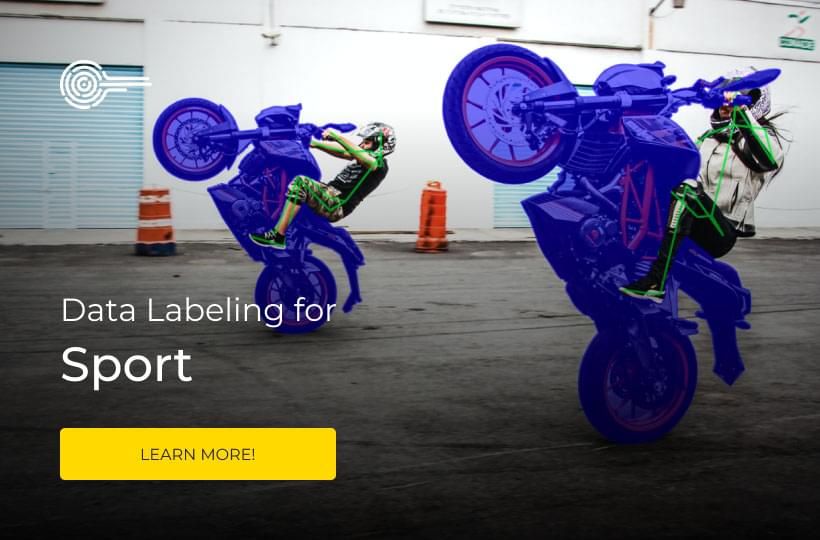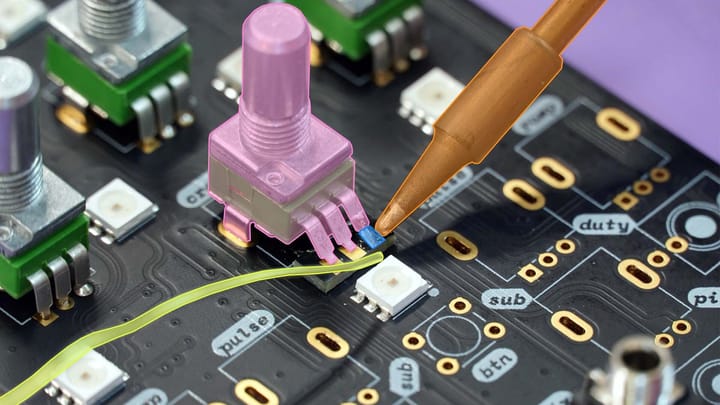Data Labeling can Help Professional Athletes

Professional sports are multi-billion dollar global businesses that entertain fans all year round. However, they are also highly competitive environments, where innovation and tenacity are prized. As a result many organisations and coaches are beginning to embrace the potential of computer vision based AI models.
AI systems that can identify and analyse player movement give coaches a competitive edge. More and more AI companies are looking to develop sports use cases as the value of this technology becomes more apparent. As a consequence there is also more demand for annotated training data.
This blog will first address the need for high quality image and video training data in this industry. Secondly we will look at some of the applications that are being developed for the sector. And finally we will identify how developers can effectively access annotation services.
Training AI models for sports
Computer vision AI systems can autonomously interpret digital images and video of sports. To achieve this developers train AI models with annotated training data. Information is added to images and video by human annotators using specialised tools.
In the case of data for sports based AIs this often means outlining and labeling players. It can also mean using skeletal annotation to identify the limb positions of athletes. This work offers valuable contextual information for AI models.
How AI supports coaches and players
The work done by annotators plays an important part in creating exceptional AI applications. The following use cases have the potential to transform coaching, performance and the on the field product:
- Improved training: Automated sensors are capable of tracking athletes during training sessions. This technology can be combined with AI to create personalised training programs. By analysing player movements AI systems can suggest ways to improve performance and fitness levels.
Training AI systems can help coaches by providing constant surveillance of training sessions. AI models ensure that each player receives the right amount of attention so that every athlete can achieve their potential. - Predictive analysis: Injuries can inhibit performance and end careers. Athletes can sometimes over train or over play resulting in preventable injuries. AI can help professional sports organisations to avoid these injuries by providing predictive analysis.
Computer vision systems can analyse the movement of athletes and identify the evidence of potential injury. AI models can detect micro-movements that may not be obvious to coaches and medical staff. - Finding highlights: Coaches collect player highlights so that they can instruct players and improve their performance. However, this process can be extremely time consuming. It can take many hours to find relevant highlights and assemble them for review. AI systems can create athlete highlight packages autonomously and in a fraction of the time.
- Scouting and recruitment: Finding the right athletes is an essential front office function for any professional sports organisation. However, it can be difficult for scouts to accurately gauge the potential of young players.
AI can help to streamline this process by providing more specific data for analysis. By tracking players in video footage AI systems can create more detailed performance statistics that can guide recruitment decisions.
Video annotation | Keymakr
Annotation excellence
The use cases outlined above depend on accurate data annotation. Keymakr provides exceptional annotation services to sports AI innovators. Coordinating large labeling projects can be an expensive distraction for any AI company. Keymakr can remove this burden from developers with competitively priced, quality focused and scalable annotation services.

Contact a team member to book your personalized demo today.



